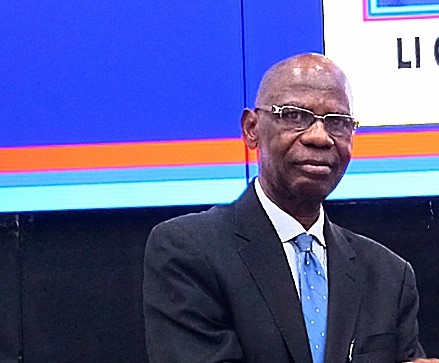
NISEng Pioneer Chair Highlights NASRDA’s Role in Nigeria’s Space Competitiveness
Brig. Gen. Michael Agu (Rtd), a Space Engineer and the pioneering National Chairman of the Nigerian Institution of Space Engineers (NISEng), emphasised the importance of the National Space Research and Development Agency (NASRDA) in building Nigeria’s space competence to enhance global competitiveness.
Agu shared this perspective in an interview in Abuja on Tuesday. He noted that a key aspect of developing space competence is the establishment of an Assembly, Integration, and Testing Laboratory (AIT) for the design, manufacturing, and testing of satellites.
According to Agu, NASRDA and the Nigerian space ecosystem already possess the necessary expertise to deliver space products and services.
“Looking at the entire space industry value chain, from launch services to satellite operation and applications, NASRDA is already involved.
“However, one challenge they face is the lack of an AIT centre for packaging their designs. This has been an ongoing issue, but there is strong enthusiasm to resolve it,” he explained.
Agu highlighted the importance of leveraging NASRDA’s skilled workforce, noting that space has many diverse areas and the global space ecosystem is highly competitive.
“In addition to satellite operation, a space agency can be involved in various fields, such as manned and unmanned space flights, launching space probes, and operating space stations. NASRDA should aim to expand into these areas.”
Also Read: Nigeria to launch four satellites
He further stated that, with the existing capabilities of NASRDA and the Federal Government, Nigeria could dominate the global space arena.
“Our presence in space has already made Nigeria a space-competent nation,” he said. “It is now up to us to develop that competence to a level where we can go beyond merely operating satellites.”
Agu affirmed that all the essential components for NASRDA to thrive and compete globally were in place. He acknowledged that the space industry is highly competitive and requires substantial knowledge and resources.
Reflecting on NASRDA’s achievements, Agu noted that the space sector encompasses various components, including space products and services, infrastructure, economy, and workforce. He praised NASRDA for its strengths in space infrastructure and workforce development. However, he suggested that the success of space products and services depends on the level of government support to bring them to fruition.
“NASRDA has grown and is well-established, with all the necessary building blocks in place to elevate Nigeria’s space industry,” Agu said. “I believe Nigeria can rank among the top 15 countries globally in terms of space competitiveness. This will require a strategic, step-by-step approach, setting clear objectives and working towards their achievement.”
Agu concluded by emphasising that NASRDA should focus on converting any weaknesses into strengths and turning any threats into opportunities as it continues to develop Nigeria’s space programme.

Comments are closed.